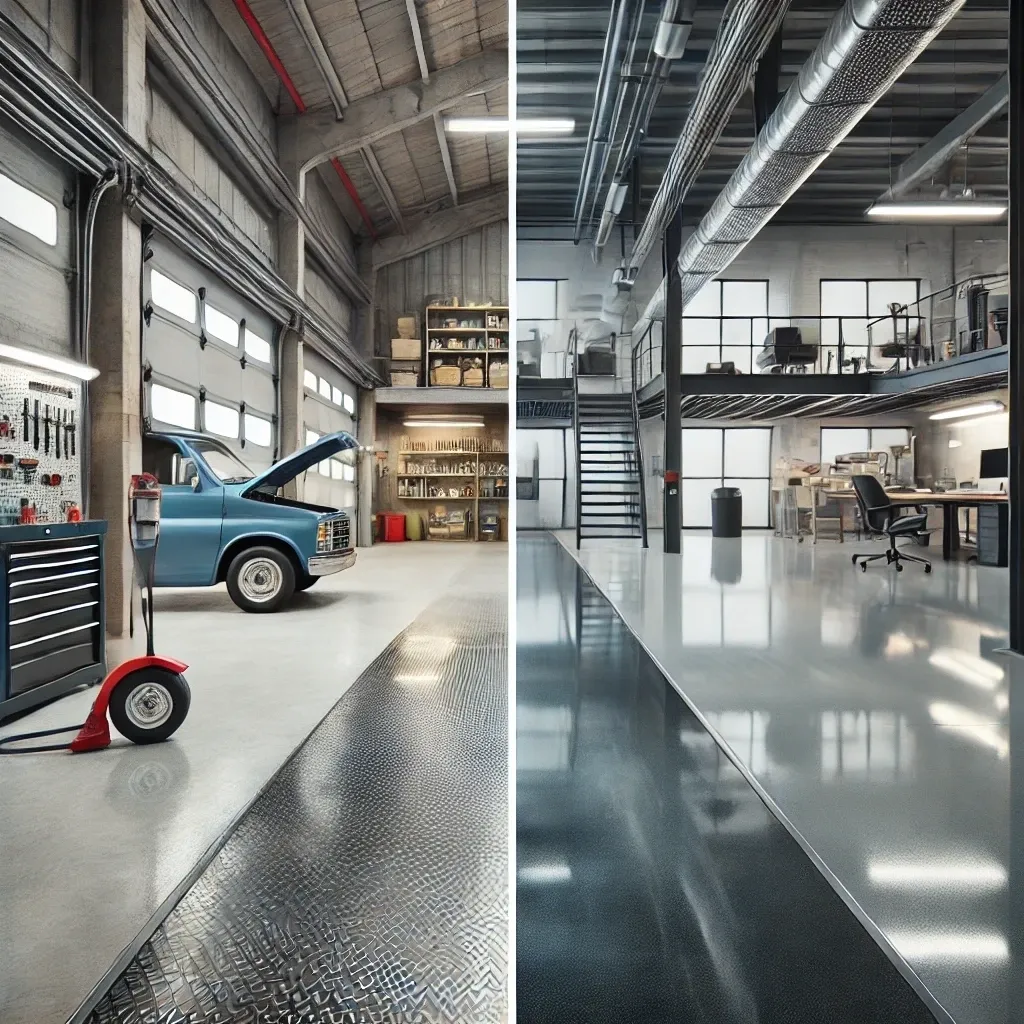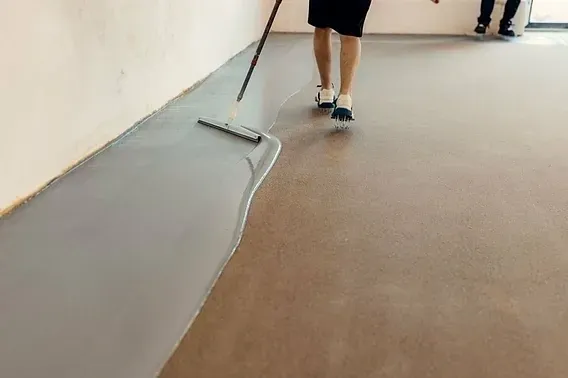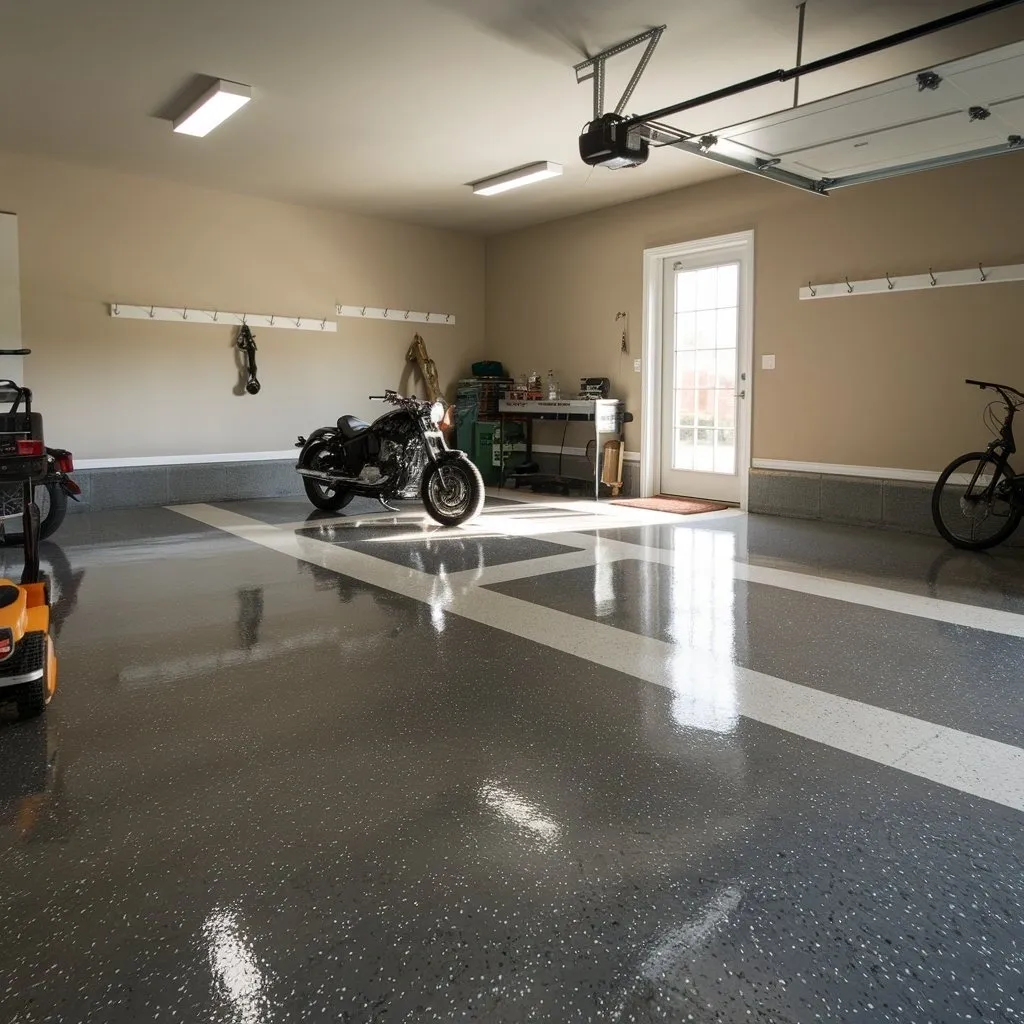When it comes to durable, attractive, and high-performance flooring solutions, both epoxy and resin flooring rank at the top of the list. At SimpliSurface Solutions, we understand that choosing the right flooring material can significantly impact the functionality and aesthetics of your space. But which option is better suited for your needs? Let’s explore the differences, benefits, and applications of epoxy flooring and resin flooring to help you make an informed decision.
What Is Epoxy Flooring?
Epoxy flooring is a type of synthetic flooring made by combining resin and hardener to create a strong, durable surface. This chemical reaction results in a rigid plastic material that bonds tightly to the substrate, offering a seamless and highly resistant finish.
Key Features of Epoxy Flooring:
- Durability: Epoxy is known for its exceptional resistance to wear and tear, making it ideal for industrial and commercial spaces.
- Chemical Resistance: It withstands exposure to chemicals, oils, and other substances.
- Customizable Aesthetics: With a variety of colors, patterns, and finishes, epoxy floors can be tailored to match any design theme.
- Easy Maintenance: Its smooth surface makes it easy to clean and maintain.
Common Applications of Epoxy Flooring:
- Warehouses
- Factories
- Automotive workshops
- Retail stores
- Garages
What Is Resin Flooring?
Resin flooring refers to a broader category of flooring solutions, which includes epoxy as one of its types. Resin floors are created by mixing synthetic resins with hardeners to form a smooth, durable surface. Depending on the type of resin used, the flooring can have different characteristics.
Types of Resin Flooring:
- Epoxy Resin: The most common and versatile type, ideal for heavy-duty use.
- Polyurethane (PU) Resin: Known for its flexibility and softness, making it better for areas with thermal shock or vibrations.
- Acrylic Resin: Typically used in decorative applications due to its fast curing and vibrant finishes.
Key Features of Resin Flooring:
- Versatility: Different resin types cater to a variety of applications and environments.
- Seamless Finish: Provides a continuous, smooth surface without grout lines.
- Impact Resistance: Resin floors can absorb impacts, reducing damage from heavy loads.
- Thermal Stability: Polyurethane resin, in particular, performs well in fluctuating temperatures.
Common Applications of Resin Flooring:
- Food processing plants
- Hospitals
- Laboratories
- Office spaces
- Residential interiors
Epoxy Flooring vs Resin Flooring: Key Differences
While epoxy is a type of resin flooring, there are significant differences between epoxy and other resin flooring options, especially polyurethane (PU) resin. Here’s a closer look:
FeatureEpoxy FlooringResin Flooring (PU)DurabilityExtremely tough; best for high-traffic areasFlexible; better for areas with vibrationsChemical ResistanceHigh resistance to chemicals and oilsResistant to organic acids and alkalisAesthetic OptionsWide range of colors, textures, and patternsFewer decorative options compared to epoxyInstallation TimeLonger curing time (24-72 hours)Faster curing timeThermal StabilityCan become brittle under extreme temperature shiftsHandles temperature fluctuations betterCostGenerally more affordableHigher upfront cost but long-term savings
How to Choose Between Epoxy and Resin Flooring
Choosing between epoxy and resin flooring depends on several factors, including your specific needs, budget, and the environment where the flooring will be installed. Here are some key considerations:
1. Intended Use
- For Industrial Applications: Epoxy flooring is ideal for heavy-duty environments such as warehouses and factories, where durability and chemical resistance are essential.
- For Commercial Spaces: Polyurethane resin flooring is better for retail shops, offices, or areas with foot traffic and aesthetic requirements.
2. Environmental Conditions
- Temperature Fluctuations: If your space experiences extreme temperature changes, PU resin flooring is a better choice due to its flexibility and thermal stability.
- Exposure to Chemicals: Epoxy flooring is highly resistant to chemicals, making it suitable for laboratories, automotive shops, and similar settings.
3. Budget
Epoxy flooring tends to be more cost-effective upfront, but PU resin flooring may offer better long-term value due to its versatility and performance in challenging conditions.
4. Aesthetic Preferences
Epoxy flooring offers a wider range of customization options, including metallic finishes, color flakes, and decorative patterns. If design is a top priority, epoxy may be the better choice.
Installation Process: What to Expect
Both epoxy and resin flooring require professional installation to achieve the best results. The process involves:
- Surface Preparation: The substrate is cleaned, repaired, and primed to ensure proper adhesion.
- Mixing and Application: The resin and hardener are mixed and applied in multiple layers.
- Curing Time: Depending on the material, curing can take anywhere from a few hours to a few days.
- Finishing Touches: Additional coatings or treatments may be applied for enhanced durability or aesthetics.
Maintenance and Longevity
- Epoxy Flooring: Requires minimal maintenance and can last 10-20 years with proper care.
- Resin Flooring: Maintenance needs vary depending on the resin type, but PU resin floors typically have a longer lifespan in challenging environments.
Conclusion: Which Flooring Solution Is Right for You?
Both epoxy and resin flooring offer unique benefits that cater to different needs. Epoxy flooring stands out for its durability, affordability, and aesthetic versatility, making it a popular choice for industrial and commercial spaces. On the other hand, resin flooring, particularly polyurethane resin, excels in environments that demand flexibility, thermal stability, and impact resistance.
At SimpliSurface Solutions, we specialize in tailored flooring solutions that meet your specific requirements. Whether you’re leaning towards epoxy or resin, our team of experts is here to guide you through the selection and installation process. Contact us today to learn more and get started on your next flooring project.



